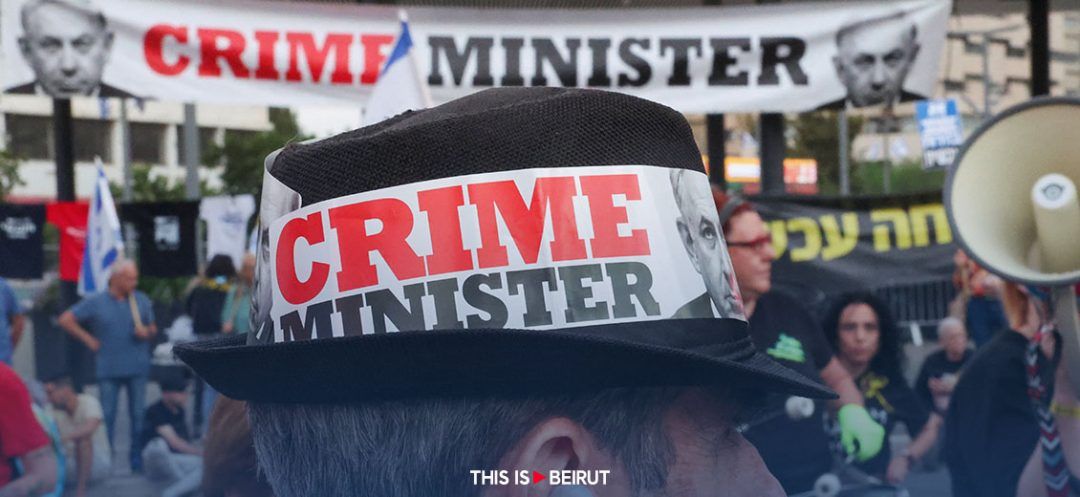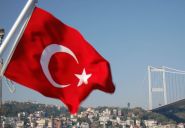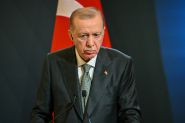- Home
- Middle East
- Rising Turmoil Inside Israel With Over 200 Days of Gaza War

While some might believe that over two hundred days since the Gaza war erupted have brought about monumental changes in the region’s landscape, the impact on Israeli society cannot be overlooked. Unfortunately, this facet often remains rarely reported by the global media, partly due to the intensely violent nature of the conflict and to the effectiveness of Israeli propaganda in steering attention away from certain topics towards other, often less pertinent, ones.
Israeli Prime Minister Benjamin Netanyahu's claim to fame as the longest-serving premier since the state's founding in 1948 doesn't secure his political future in the post-war era. Despite being well aware of this fact, and the unlikeliness of achieving the goals he had set following Hamas’ al-Aqsa Flood, namely the total eradication of the Islamist Palestinian group and the unconditional release of Israeli hostages, Netanyahu persists in prolonging the conflict. His first objective has proven unattainable both militarily and politically, while the second has only been partially achieved through a negotiated hostage-prisoner exchange deal.
As Netanyahu and his team grapple with the looming threat of an international arrest warrant by the International Court of Justice (ICJ) against them and several other Israeli officials, internal concerns also weigh heavily. The domestic scene is going through significant shifts in view of Netanyahu's strained relations with some ministers who are deemed "more extreme," leaving him wary of potential future backstabbing.
It's still uncertain whether the ongoing public fervor to prolong the war can provide a lifeline for Netanyahu and his team, especially in light of relatively diminishing international support.
Additionally, there's an increasing call for a ceasefire and for abandoning the possibility of invading Rafah, a move that would inevitably lead to a catastrophic massacre of Palestinians trapped in the city. In fact, many of them have repeatedly fled from all corners of the Gaza Strip to escape the indiscriminate airstrikes and deliberate destruction inflicted upon Gaza as a whole.
The Israeli public's endorsement of the war (not Netanyahu per se), regardless of its lack of success in achieving any of its stated goals, deserves further exploration. This support reflects a concerning trend of increasing extremism within Israeli society and a diminishing presence of the "pro-peace camp." Despite its historical limitations, this camp is facing persecution by the Israeli political and military establishment.
The mere fact of popularizing the notion of "getting rid" of Palestinians, and have it deeply ingrained within the societal psyche instead of being confined to the Zionist political, military and religious establishment, speaks volumes about the profound shifts within Israeli society and the increasing mobilization against the concepts of peace and reconciliation. It is significant to note that Israel has not relinquished any of its gains since the Oslo Accords (1993) up to the present day, deferring all sensitive and critical issues — known as final settlement matters — including borders, refugees, Jerusalem, water and other crucial matters that profoundly influence the course of the conflict.
Despite months of persisting Israeli popular protests, which had started before the war in Gaza in opposition to the judicial amendments sought by the Netanyahu government — aimed at restructuring the political system, consolidating power and curtailing the judiciary's role — the war allowed Netanyahu to reshuffle his popularity and deflect attention from crucial domestic issues.
Moreover, the popular protests did not escalate to the levels witnessed in Israel following, for example, the Israeli invasion of Lebanon in 1982. They remain insufficient to eventually topple Netanyahu, once and for all.
It is believed that unless Netanyahu's government collapses from within, possibly due to the resignation of some of its more hardline ministers, its toppling in the street seems unlikely at this point. However, if street protests were to escalate to unprecedented levels, it could significantly increase pressure on Netanyahu, potentially compelling him to resign.
When delving into the internal dynamics of Israeli society and its trend towards extremism, the absence of a genuine Israeli partner committed to peace becomes blatant. This can be attributed to various factors, including the entrenched principles of Zionist ideology, which staunchly oppose acknowledging the national rights of the Palestinian people.
Read more




Comments